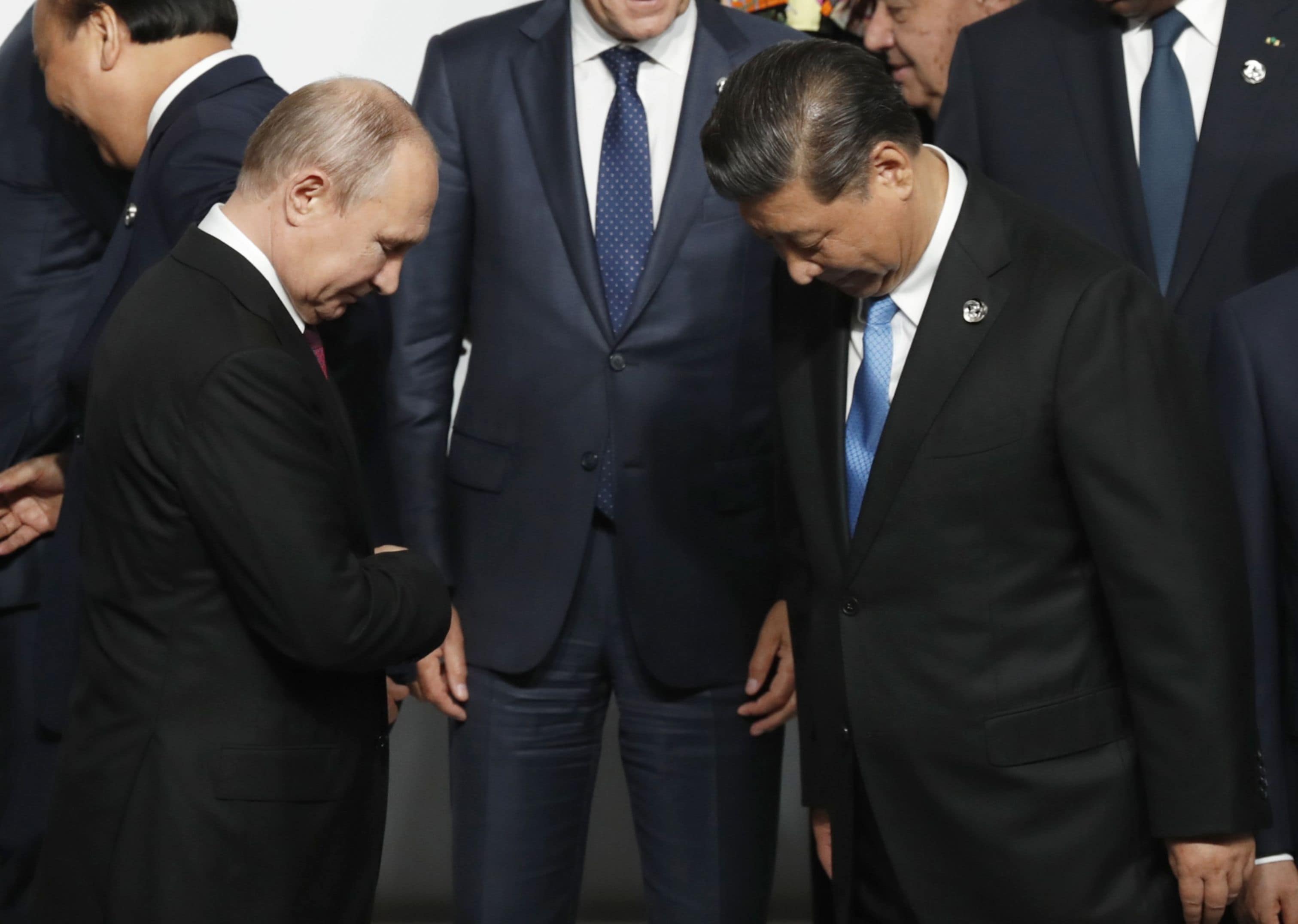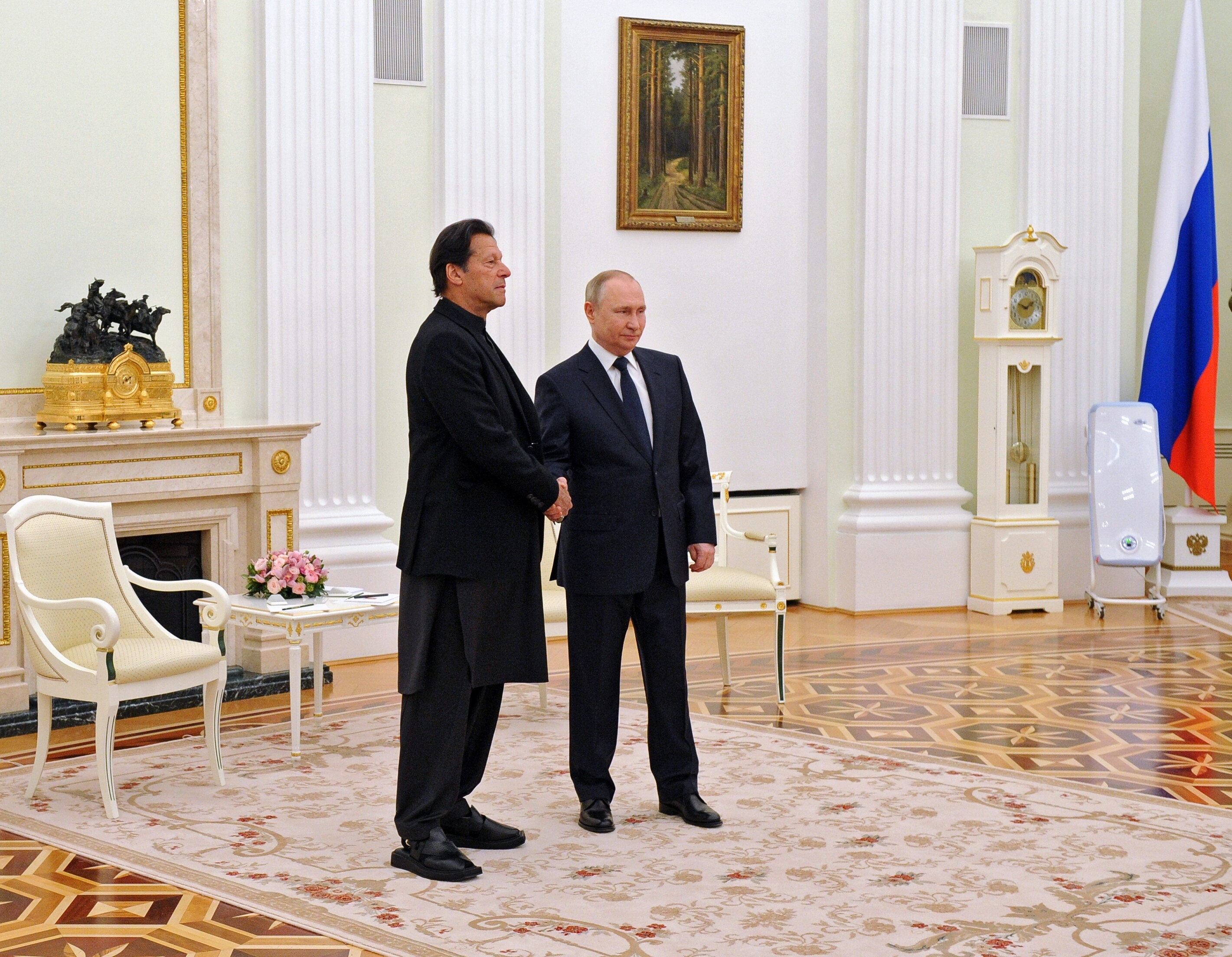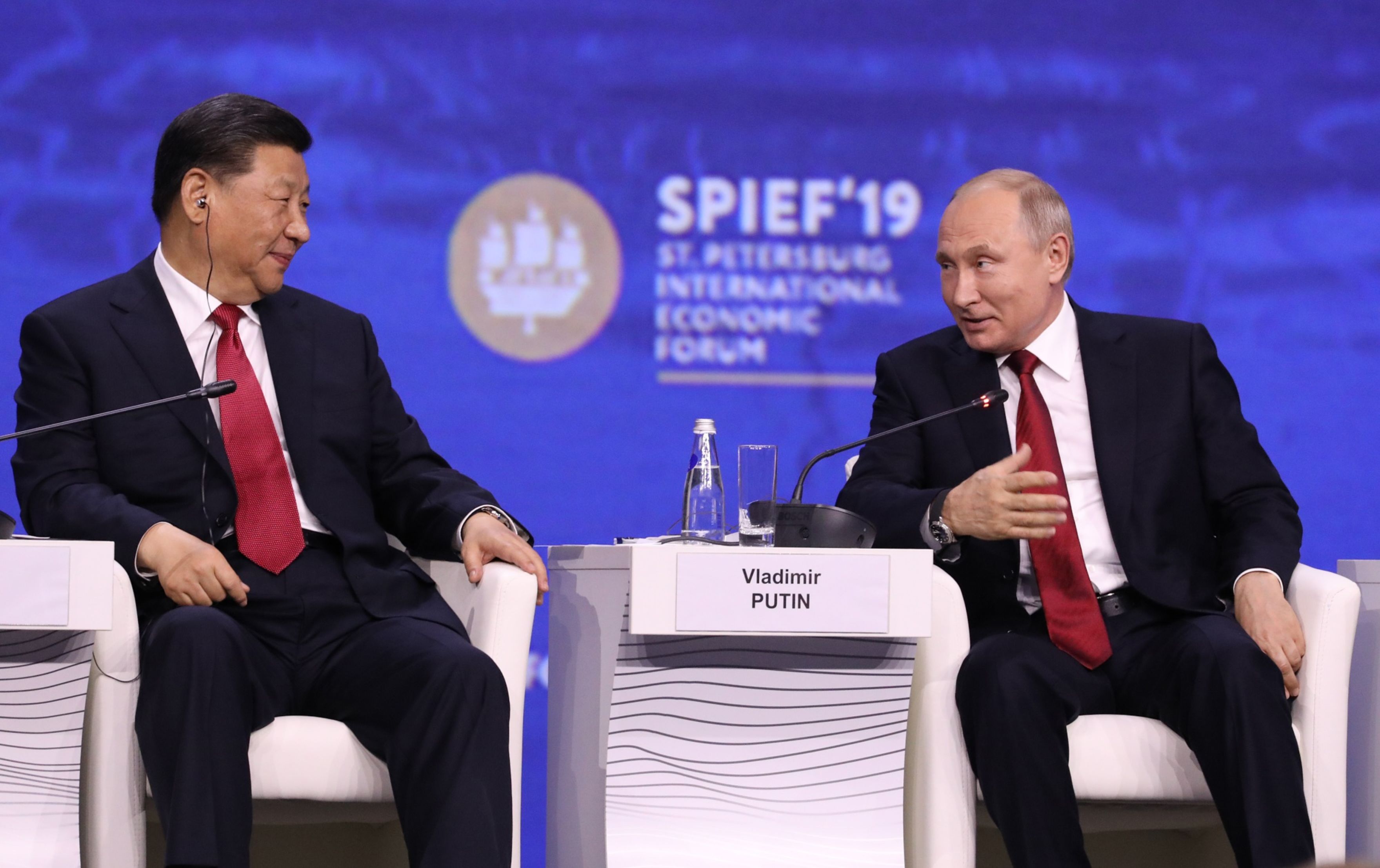→ In the post-Ukraine war world, India will have to account for China in Russia's corner – and all that comes with it.
Since Russia's invasion of Ukraine, much has been said about India's equivocation. Yet not enough attention has been on the immutable realities beyond India's control that will affect its policy from here on.
Russia's actions have raised the stakes for everyone, including India. While American intelligence indicated the likelihood of war, most, including China, were skeptical of President Vladimir Putin's appetite for risk. The war and the immediate penalties announced by the European Union and the United States make one thing clear – this is Russia's break from the West for the foreseeable future.
What Is At Stake
This also means that for all intents and purposes, Russia and China have formed a bloc that stands in direct confrontation with the U.S.-led world order.
China moved past its initial hesitation and defended Russia, blaming the United States, and has set the pattern for the immediate future – Beijing, and Moscow leaning in on their alliance, with the latter depending on China for not just political, technological and economic assistance.
The joint statement after the Xi-Putin meeting in early February helpfully explained, “friendship between the two states has no limits, there are no ‘forbidden' areas of cooperation… the new relations between Russia and China are superior to political and military alliances of the Cold War era.”

Vladimir Putin and Xi Jinping, before a photo session at the G-20 summit in Osaka, Japan, on June 28, 2019. (Photographer: Kim Kyung-Hoon/Pool via Bloomberg)
India's approach, including the decision to abstain from the United Nations Security Council vote on Russia's aggression towards Ukraine, has been in line with its response to the 2014 crisis. However, this time, there are crucial differences beyond India's control, but with the potential to impact its policies. This includes Putin's appetite for greater costs, as well as the geoeconomic and geopolitical impact that would be felt by everyone. It would also include a potential rethink on the U.S.' part about whether its structural adversary is in Europe or the Indo-Pacific.
India's Options And Costs
India's options lie between the extremes of appealing for peace without naming names as it has been doing, and openly calling out the violation of Ukrainian sovereignty. While India has managed to maintain a delicate balance so far, the longer this war draws on, the more difficult it will be to justify this ambivalence. Ukraine has asked New Delhi to use its influence with Moscow multiple times, while Europe and the United States have indicated they expect more. So far, only Russia has been happy with India's stand.
For now, it is unlikely that these questions will affect India's stand in the Quad grouping with the U.S., Australia, and Japan, or America's Indo-Pacific strategy. Washington is aware of India's difficult position when it comes to Russia. However, that hardly lets India off the hook. After the dust settles, the Russia-China alliance will emerge tighter than before, coordinating their actions and policies including in India's backyard. As the rising power, and the actor more entrenched in the global system, Beijing will have more heft in influencing Moscow's policy.
This may mean, for example, Russia no longer feeling obligated to honour India's request of not arming Pakistan.
Similarly, Russia may also be reluctant to veto the Kashmir issue the next time it is raised in the United Nations.
Pakistan Prime Minister Imran Khan, in Moscow the day Russian troops marched into Ukraine, is no doubt aware of this possibility – Kashmir featured prominently in his meeting with Putin.

Pakistan Prime Minister Imran Khan meets Russian President Vladimir Putin, at the Kremlin, in Moscow, on Feb. 24, 2022. (Photograph: President of Russia/Twitter)
Over the last decade, China has assiduously developed relationships in the region, beyond Pakistan. The countries have mostly responded positively, not least because of the added attention it gets them from countries like India and the United States. A realignment of alliances can open up additional benefits for these actors if they can find a way to work around sanctions. This is perhaps why during the current crisis, South Asia's states have been cautious about taking sides.
South Asian states with rising energy needs may find a willing supplier in Russia. Russia is already helping to set-up a nuclear power plant in Bangladesh paid for by Russian loans – a model that China has successfully applied in the region, one that Russia will be keen to extend to others. While New Delhi and Moscow have usually coordinated their efforts in South Asia, in changed realities, the unofficial understanding may no longer hold.

Vladimir Putin sits beside Xi Jinping, at the St. Petersburg International Economic Forum, on June 7, 2019. (Photographer: Andrey Rudakov/Bloomberg)
Any stand that Russia believes is not an endorsement of their position will come with costs. At worst, it may even mean a hard break with history – an end to one of the most significant special relationships that India has had for half a century. In such a situation, while arms supplies may continue, Moscow will refuse technology transfers or the lease of nuclear submarines. Of more immediate concern, when Indian soldiers are still engaged in standoffs across the Line of Actual Control, India will not be able to count on unconditional and immediate supply of arms and ammunition in the event of a flare-up as in 2020.
The Last Word
Thinking of a policy that distances India from Russia may seem to go against the principles of realpolitik. However, the challenge lies in being able to identify what India can influence, and what it cannot. Irrespective of how India plays it, sanctions will ensure there is a heavier cost in doing business with Russia. Similarly, no matter how careful the two countries may have been about each other's sensitivities, Russia will now have to accommodate Chinese interests.
The difference in Russian and Indian worldviews is suddenly a lot starker and a lot closer than ever before. Irrespective of what India decides now, in a not-too-distant future it may need to choose between its much-cherished strategic autonomy, and its core interests.
Deep Pal is a Visiting Fellow in the Asia Program at Carnegie Endowment for International Peace. Shibani Mehta is a Research Analyst at Carnegie India's Security Studies program.
The views expressed here are those of the authors and do not necessarily represent the views of BloombergQuint or its editorial team.
Essential Business Intelligence, Continuous LIVE TV, Sharp Market Insights, Practical Personal Finance Advice and Latest Stories — On NDTV Profit.























